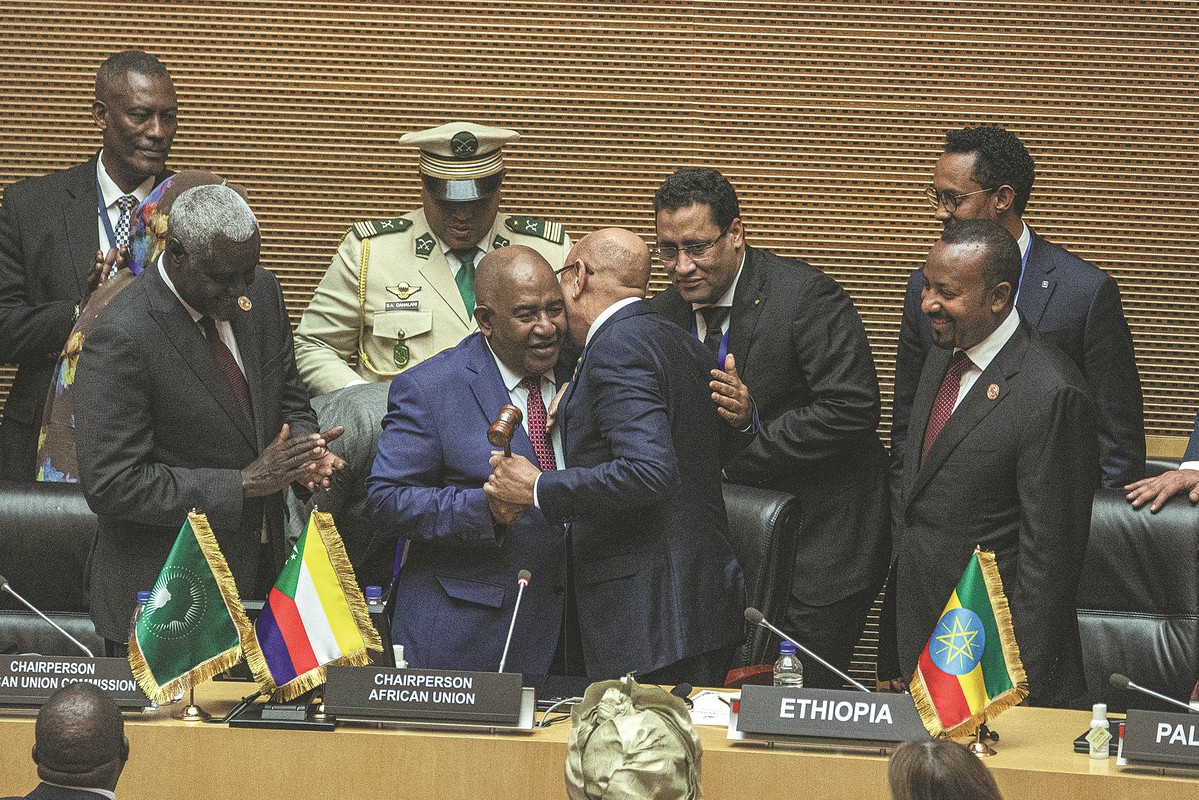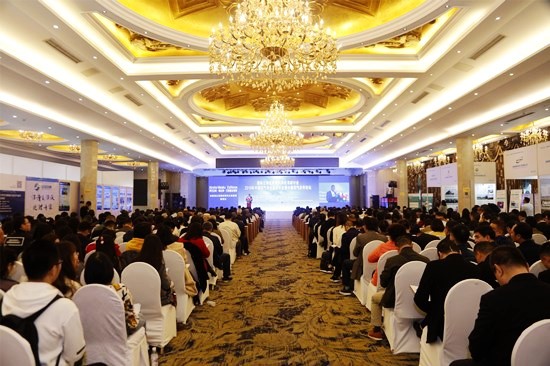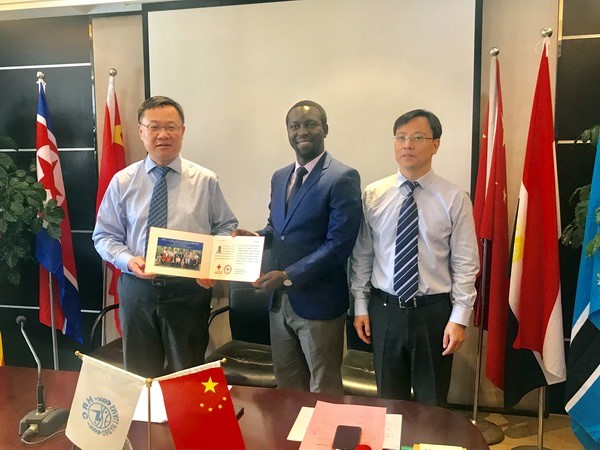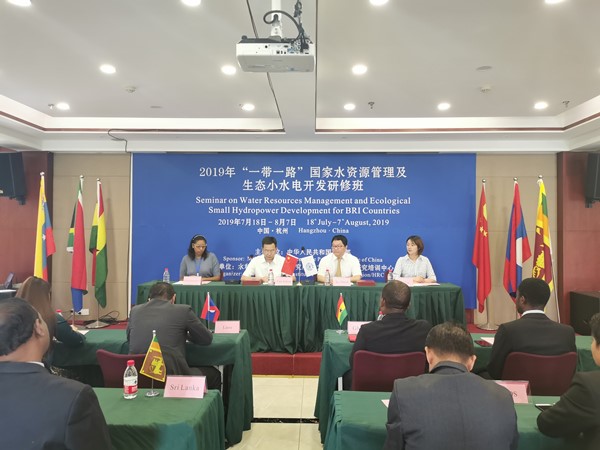
The outgoing chairman of the African Union and President of the Comoros Azali Assoumani (center left) congratulates the newly elected chairman of the AU and President of Mauritania Mohamed Ould Cheikh Ghazouani at the 37th Ordinary Session of the Assembly of the Heads of State and Government of the African Union in Addis Ababa, Ethiopia, on Saturday. AMANUEL SILESHI/AFP
Chinese President Xi Jinping sent a congratulatory message on Saturday to the 37th African Union summit held in Ethiopia's capital Addis Ababa.
The world is undergoing profound changes unseen in a century, Xi said, and the Global South represented by China and Africa is booming, which has a profound effect on the course of world history.
The AU brings African countries together to seek strength through unity and promote integration and the building of free trade areas, he said.
The bloc's accession to the Group of 20 has further enhanced Africa's representation and lifted its voice in global governance, he said, and China extends heartfelt congratulations on that.
Over the past year China-Africa relations have grown deeper, he said. As the China-Africa Leaders' Dialogue was held in August, the two sides decided to support each other in exploring their modernization paths and jointly create a favorable environment for realizing their development visions, he said.
The new session of the Forum on China-Africa Cooperation will be held this year, he said.
He is ready to work with leaders of African countries, with a focus on the benefits of people from both sides, to draw up a new blueprint for China-Africa collaboration and promote the joint building of a high-level China-Africa community with a shared future, he said.
At the opening of the two-day meeting on Saturday, Ethiopia's Prime Minister Abiy Ahmed said new technologies and innovative learning models could help Africa leapfrog into the future, noting that technology has taken learning beyond the classroom.
"Artificial intelligence is delivering personalized learning, tailored to children's needs by breaking down cultural and language barriers."
"Such developments will allow our youth to unleash their entrepreneurial spirit, problem-solving skills and determination to overcome challenges on Africa's development path."
Investment and financial constraints are the major challenges affecting education in Africa, Ahmed said, and the continent's financial needs are growing because of climate change and the cost of living crisis.
He called on major financial agencies to consider the realities of today's world, particularly regarding middle- and low-income countries.
Mohamed Ould Cheikh Ghazouani, president of Mauritania and president of the Assembly of the Heads of State and Government of the AU, said the success of Africa's sustainable development hinges on substantial investment in human resources, emphasizing a comprehensive, high-quality education that embraces science and technology.
Education serves as the cornerstone for sustainable development, acting as a crucial catalyst for security, stability and the cultivation of skills that pave a pivotal role in breaking the cycle of unemployment, poverty and fragility, Ghazouani said.
The loss of Africa's youth, who constitute about 62 percent of the total population, is synonymous with the loss of the continent, he said, and an educated youth is a lost opportunity.
"Witnessing millions of young Africans lacking basic skills, unemployed in their own countries or risking their lives on perilous migration journeys underscores the urgent need for a radical transformation of our educational systems."
Africa's education system grapples with limited access, high dropout rates and inadequate quality education and training, he said.
More than 17 percent of children in Africa are out of primary school, he said, and 75 percent of young people at the secondary level lack the essential skills.
He urged governments, civil societies and stakeholders in various fields to redouble their efforts in raising awareness and mobilizing human, technical and financial resources.
"Such initiatives will unlock and empower the creative energies of African women, fostering their effective leadership across diversity development pathways."
Brazil's President Luiz Inacio Lula da Silva, who is on a state visit to Ethiopia, said his country is willing to develop educational programs in Africa and promote intense exchange of teachers and researchers.
On Sunday the AU Commission said that to realize a prosperous Africa based on inclusive growth and sustainable development, the continent needs to make significant investment in education with the aim of developing human and social capital through an education and skills revolution emphasizing innovation, science and technology.
Source: China Daily







